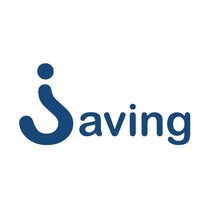The following posts will be more focussed on retrospective formats/styles that could help the self organized team in different scenarios.
The first format/style I would like to explain is what I call "The Diplomatic Open Retro".
This retrospective style is best suited for a team that its not very familiar with the concept of retrospectives and also has a necessity of improving mostly its internal team self organizational process(e.g internal communication, workload management, development practices, internal optimizations, etc...).
How it works
At the beggining every attendant receives some post-it notes and is asked to write down all the topics that would like to discuss. Ten minutes should be enough, but depending on many factors sometimes gathering topics is more difficult. In order to help people getting inspired, the facilitator can play some relaxing music, also could write some of the hot-topics from the previous analysis in a board or even encourage the people to talk to each other(as long as it is helping discover topics).
This period is a critical part of the retrospective and it should take as long as needed, nobody should feel rush and only when all are happy with the topics collected the retrospective will carry on. Also it is important to mention that in the post-it, the team members can write in whatever way they want, there is no predefined format, even a simple sentence could do. If a team member doesn't know what to write, it is perfectly fine(he/she doesn't have to).
The next step will be to go one round around the table in which each of the members will briefly with a couple of sentences, explain each of the cards they wrote. There will be no replica, this is just a pure diplomatic exercise in which the members will try to convince the others of voting on their topics to be discussed. The person talking will stand up and as he/she briefly explains the topic, will also start sticking them into the voting board. During this period it often happens that people are mentioning the same topic so, this will be also a great exercise to group the topics that are repeated together so the voting can after be more accurate.
Once the topics are on the board, it is the time for for voting. Each of the members will be asked to place 3 marks in those topics that considers more important to be discussed.
It is important to understand that the time for the retrospective is limited and not all the topics will be discussed so the team needs to have a mechanism of selecting those topics that are considered more important. No voted topics will be discarded(They will appear in future retrospectives if they are important).
The voted topics will be discussed in order of(most voted ones first). The facilitator will make sure that takes notes of possible actions and key points as the conversations goes. Each topic will be time boxed within 10 to 15 minutes, after that time the facilitator will ask every body to start proposing and deciding on actions and owners for those actions. Actions will need to be decided before moving on to the next topic. It is very common in retrospectives that there is a lot of debate but little actions, this retrospective style attempts to gather actions while topics are closed. For the team to decide that an action is not needed its ok but this is rare to occur and if it occurs it will have to be decided by all that no action is to be taken. See an example of how gathered actions look like:
ACTIONS
Low
Team Capacity(4 votes)
- Team unsure if should talk to HR, Management or other Dev team.(Owner: No action to be taken until we find out)
Coolaboration between teams(3 votes)
- Devs to assist testers before moving into next dev task(Owner: All devs)
- Setup the machine of the new joiner(Owner: Team Leader)
- Review handover checklist before going on holidays(Owner: All devs)
Failing builds(3 votes)
- Determine why the build is red for more than a month(Owner: Senior dev)
Cakes all over the office(2
votes)
- -Stop eating unhealthy cakes and organize a team dinner to celebrate xmas(Owner: Team Leader)
Tech debt catch up(2 votes)
- -Not enough time to discuss in this retro, add as a hot-topic for next retro(Owner: Facilitator)
Sometimes the team is unable to decide an action, because their dependency/blocker is outside of their team. In this case, they will need to identify who are those individuals that need to be influenced. But that is a topic that I will cover in another post.



